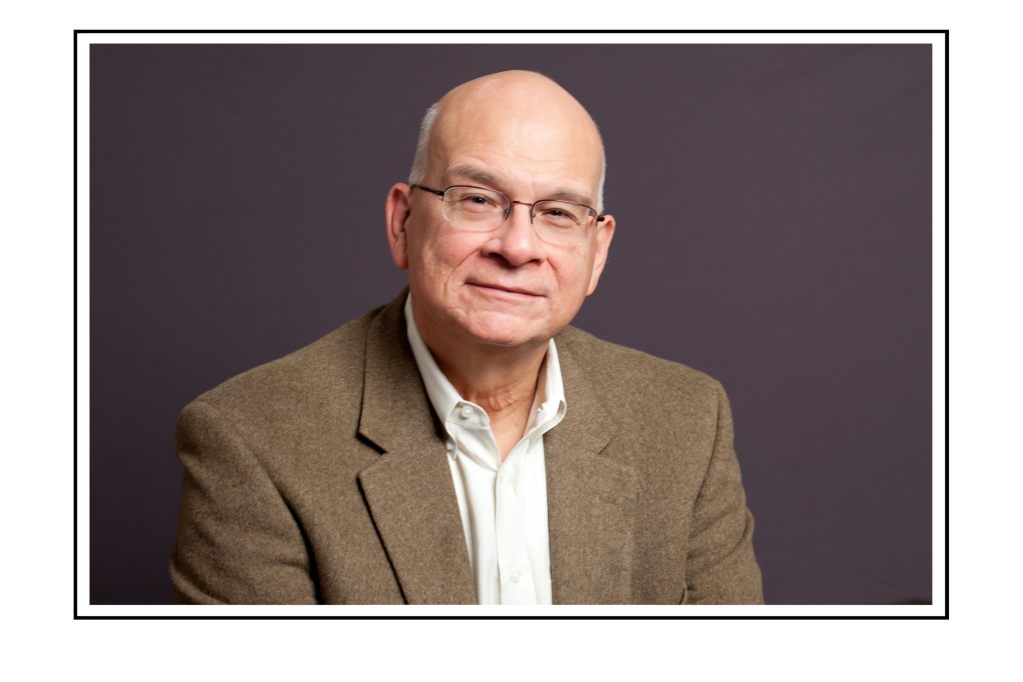
I have been listening to the podcast series, The Rise and Fall of Mars Hill. I didn’t listen to it when it came out and was popular. I tend to eschew popular things. This might be wisdom. It might be pride, or it might just be the way I am wired.
That instinct or intuition or character trait, whatever it is, has been good for me in many ways. I resist going along with the crowd, and I have learned not to trust crowds and crowd mentality. That mentality may have been instrumental in my coming to faith and becoming a follower of Jesus.
Jesus said, “Enter through the narrow gate; for the gate is wide and the way is broad that leads to destruction, and there are many who enter through it. For the gate is small and the way is narrow that leads to life, and there are few who find it.” (Matthew 7:13-14, NASB) When I read that, I was (perhaps) predisposed to be drawn to that sentiment.
Perhaps, I was that way because of some noble intuition. Perhaps, I was that way because I felt like an outsider. It’s hard to be sure (really) of our own motivations. I think the prophet, Jeremiah, was right when he said that human hearts are deceitful. Who among us can really (truly) know our own hearts completely?
Pride has a way of making our own weaknesses look like strengths. Pride tempts us to embrace our character flaws and to lead with them. Pride can even clothe itself in a form of humility and nobility.
The truth is often a very mixed bag. My inclination to buck what is popular and trendy and to seek “the narrower” way may have helped me in being willing to embrace Jesus and become a follower, but it has also lead me down some rocky and rough terrain that was, frankly, dangerous.
For one thing, I almost didn’t return to college for my senior year because of a “cultish” denomination that believed their theology was right, and everyone else was wrong. I was afraid that going back to college might be walking away from God because I was predisposed to believe in the narrow path. (And their path was very narrow!)
Another example has had much more long lasting effects on my life and sent me on a trajectory that continues today. I shared recently some of my story in, Keeping it Real on the Path to Wherever I am Going. My predisposition to avoid the beaten path influenced me to take an alternative route to ministry, which is all I wanted to do after I got “saved” in college. In that piece I wrote:
“I didn’t trust my college advisors because they didn’t believe the Bible like I did. I should have gone to seminary, but I didn’t because the apostles who stood up on the day of Pentecost and preached powerfully and eloquently in various tongues to the crowds in Jerusalem were unlearned men. I wanted to be like them.”
Keeping it Real on the path to wherever I am going
That path to ministry never worked out for me, and maybe it’s a good thing it didn’t! The audacity to think that I could perform in ministry like the apostles without sitting at the feet of Jesus in the flesh for three years would not have been a good foundation for shepherding his flock.
The Rise and Fall of Mars Hill is an object lesson in where my kind of disposition can lead. I am not saying that it must (necessarily) lead to the kind of crash and burn that occurred with the Mars Hill church movement, but the danger is certainly great.
I have listened to all of the primary episodes of that podcast, and I am listening now to the bonus episodes. I am finishing the one that features Tim Keller. The more I listen to him and read what he has written, the more I appreciate his depth of understanding and wisdom.
(You can listen at the link below if you are so inclined. In fact, if you don’t have enough time, energy or inclination to go much further here, I suggest you stop and listen rather than read on. But, I will continue anyway.)
From what I have learned of Mark Driscoll, he is, perhaps, a more talented, confident, and bold version of me. Driscoll has often said that he believed he was called to plant a church though he had never been to seminary and had never even been a member of a church. A Seattle Times reporter described Driscoll this way, quoting him directly:
“For years the edgy, blue-jeaned, hipster preacher used charisma and combativeness to barrel through turmoil, once bragging that he’d mow down all who questioned his vision: ‘There is a pile of dead bodies behind the Mars Hill bus, and by God’s grace, it’ll be a mountain by the time we’re done,’ he once said in a meeting. ‘You either get on the bus or you get run over by the bus.’”
The rise and fall of Mars Hill Church, Sep. 13, 2014, By Craig Welch
His talents, confidence, and boldness enabled him to do what he set out to do. He was a rising star. He was wildly successful in the spiritual desert of the Pacific Northwest, and he drew many unchurched people to the Mars Hill movement. In twenty years Mars Hill Church went from a new church plant to a mega church with 15,000 people in 15 locations.
Then, Mars Hill imploded, even faster than it rose.
Many young men became pastors under Driscoll. Many people were run over by the Mars Hill bus, and many people were hurt when that bus crashed and burned.
The seeds of the demise of Mark Driscoll and Mars Hill were mixed with and difficult to distinguish from the seeds that caused its rapid growth. That bold faith and brash confidence were as instrumental in the rapid success as they were in the more precipitous fall
As I think about the story of Mark Driscoll and reflect on my own story, I can see that talent, confidence, and boldness can be a dangerous combination in the Church without the character to counterbalance it.

Mike Cosper, who produced the podcast for Christianity Today, summarized the legacy of Mars Hill in the trailer to the podcast as a “body count of young pastors whose ability rose them to prominence before their character was ready for it.”
I could have been, perhaps, like them under similar circumstances. I thought ministry would just happen for me, but it didn’t. I might have been too passive in waiting for it. I also didn’t have a Mark Driscoll to conscript me into his spiritual army.
The Rise and Fall of Mars Hill and Tim Keller’s perspective on it has given me much food for thought. Keller makes a case for denominational “ecclesiology” with the checks, balances, and guard rails that are built into a denominational structure.
I once believed that a “plurality of elders” structure in an independent church body could provide that kind of protection, but I may have been naïve in that assumption. I neglected to note that the first apostles spent three years in intensive ministry training with God in the flesh. While a seminary curriculum and denominational structure isn’t the same thing, it may be much better than nothing!
An eldership, even with the notion of equality and accountability, can easily become an echo chamber without an outside, objective influence. The apostles and prophets with which I became familiar in the circuit of independent, Charismatic churches that was my ecclesial experience seem somewhat maverick and unaccountable as I look back on my time in that church environment.
Perhaps, God was being gracious to me that a full-time ministry did not come my way. I don’t know whether I had the talent for it, but I didn’t have the character development for it, and I was just as disposed to be a maverick, like Driscoll.
I have viewed denominations as movements of God that waned when people settled in and camped out on the things that God was emphasizing in a particular time in history. I have viewed denominations as movements of God in which the people stagnated and set down doctrinal stakes that became static and institutional.
Having never been part of a denomination in my Christian life, perhaps, I have been ignorant about it. I am still a member of a non-denominational church, but I appreciate the protections that are necessary to save people from themselves.
Keller admits that denominations are far from perfect. They have their weaknesses, but they also have their strengths. He advocates for cross-pollenization among denominations, especially in church planting, which is an idea I have never considered.

Each denomination is known for its strengths, and its weaknesses. (Like people.) No one has the perfectly right way to follow Jesus. Even the apostles disagreed among themselves at times on how to this thing we call church. Mutual submission, humility, peacemaking, and a focus on unity are the hallmarks of Paul’s instruction to the church bodies he influenced in his day.
Keller says there is no model to church planting. A successful church plant in Manhattan is going to have a different DNA than a church plant in rural Pennsylvania. Keller has led both types of churches.
Keller advocates for reaching people where they are and showing people the winsomeness of Christianity before delivering to them the truth of the Gospel. He evokes the Francis Schaeffer image of a LaBrie community in which nonbelievers feel welcome to participate. Otherwise, we are just attracting Christians from other churches in the area. We have to foster a Christian community that is welcoming, while remaining authentic and true to the Gospel.
Keller realized that evangelicals don’t have cultural capital in the world. Therefore, he endeavored to read what the people in the culture read and to understand it better than they do. He sought to obtain the cultural capital to reach people were they live, to understand the hearts of the people he was trying to reach in their cultural milieu, and to bring the message to the people from a place of common connection.

I am reminded of the 2nd Century letter from an anonymous Christian leader to a Roman ruler, Diogenites. The writer commended Christians to him who inhabited Greek and Barbarian communities, alike, “following the customs of the natives in respect to clothing, food, and the rest of their ordinary conduct.”
“As citizens, they share in all things with others, and yet endure all things as if foreigners. Every foreign land is to them as their native country, and every land of their birth as a land of strangers.”
THE EPISTLE OF MATHETES TO DIOGNETUS
CHAPTER 5
They didn’t live brashly and antagonistically set apart. They also didn’t meld into the culture around them. “They dwell in their own countries, but simply as sojourners,” observed the author. They fit into the culture in which they lived, but they lived there noticeably as citizens of a foreign, heavenly kingdom.
Keller’s approach harmonizes with the way those 2nd Century Christians lived out the Great Commission within just a few generations after Jesus. His wisdom is evident to me.
Keller goes on to share his personal experience with Driscoll in the circles in which they both moved. Driscoll was a young star, but he refused to be accountable to anyone with a smaller church than he led. That meant he refused to sit under men like Tim Keller and John Piper, who rubbed shoulders briefly with Driscoll and were displaced by him as people were drawn to bold leadership.
Driscoll’s “model”, however, didn’t look anything like Jesus, who admonished his own disciples that the greatest leaders are the servants of all. Jesus taught them to wash feet and to have their own feet washed before sending them out among the wolves of the world.
As the podcast reveals, Driscoll refused to be accountable to anyone, even as he preached accountability to everyone who listened to him. His talent for persuasion and leadership, and his confidence and boldness precipitated his meteoric rise and took took him far out over the skies of his character. His talents advanced him further than his character could sustain him.
Driscoll had many opportunities for development of humility and the kind of character that might have sustained him and the movement he led, but his success overshadowed those opportunities. His success obscured his vital need for character development. Talent without great character may reflect worldly leadership, but it cannot sustain the advance of the kingdom of God.
It seems I have had far more reason to take seriously the opportunity for character development in my life. Not that I have been overly successful in those circumstances. I had the benefit, however, of far less success to obscure my need for humility and refining.
We have seen many similar successes that ended in a failure of character in recent years: Mark Driscoll, Bill Hybels, James McDonald, Ravi Zacharias, and many others. It seems endemic in evangelical circles today.
I wondered yesterday how to conclude this reflection. Following is the daily Bible verse I read this morning:
“Who is wise and understanding among you? Let them show it by their good life, by deeds done in the humility that comes from wisdom. But if you harbor bitter envy and selfish ambition in your hearts, do not boast about it or deny the truth. Such ‘wisdom’ does not come down from heaven but is earthly, unspiritual, demonic. For where you have envy and selfish ambition, there you find disorder and every evil practice.
James 3:13-18
But the wisdom that comes from heaven is first of all pure; then peace-loving, considerate, submissive, full of mercy and good fruit, impartial and sincere. Peacemakers who sow in peace reap a harvest of righteousness.”
Driscoll was not just ambitious; he was highly defensive and quick to lash out against anyone who challenged his authority. He was accused of being arrogant. The Seattle Times article cited above said, “Driscoll could be vicious, abusive and controlling”. He exhibited a particular unwillingness to submit or be accountable to anyone. His leadership was often chaotic and disordered. Growth was the primary goal..
Meanwhile, men like Tim Keller model humility, gentleness, mercy, consideration of others and submission to others. Keller was not nearly as “successful” as Driscoll (by the raw numbers), so Driscoll would not submit to him, but whose legacy lasts?
Jesus said, “From the days of John the Baptist until now, the kingdom of heaven has been subjected to violence, and violent people have been raiding it” (Matthew 11:12), but the real victory and advancement of the kingdom of God came from Jesus giving up his life for us, and he gently reminds us to follow him.

One thought on “Keeping It Real for the Church: Talent in Tension with Character”